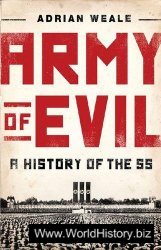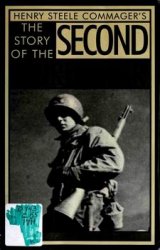African mythologies include supernatural beings who influence human life. Some of these beings are powerful deities or gods. Others are lesser spirits, such as the spirits of ancestors.
Deities Most African traditional religions have multiple gods, often grouped together in family relationships. Nearly every culture recognizes a supreme god, an all-powerful creator who is usually associated with the sky. Various West African peoples refer to the highest god as Amma or Olorun, while some East Africans use the name Mulungu. Africans who have adopted Christianity or Islam sometimes blend the supreme deity of those faiths with the supreme deity of traditional African religion and mythology.
In most African religions, the supreme god is a distant being no longer involved in day-to-day human life. People rarely call on this deity. Instead, they address lesser gods, many of whom have distinct functions. The Yoruba people of Nigeria, for example, worship a storm god, Shango, who controls thunder and lightning.
The number of gods and goddesses varies from culture to culture. The Buganda people of east-central Africa have twenty or more deities. Many populations regard the earth, sun, and moon as gods. In the Congo River region, the most densely wooded part of Africa, the forest itself is a deity, or else a mysterious other world where spirits dwell.
Spirits African mythology is filled with spirits, invisible beings with powers for good or evil. Spirits are less grand, less powerful, and less like humans than the gods, who often have weaknesses and emotions. Many spirits are associated with geographical features, such as mountains, rivers, wells, trees, and springs. Nations, peoples, and even small communities may honor local spirits unknown beyond their borders.
All humans, animals, and plants have spirits, as do elements, such as water and fire. Some spirits are helpful, others harmful. People may worship spirits and may also try to control them through magical means, usually with the aid of a skilled practitioner or healer, often known as a shaman, who leads them in rituals. People thought to have evil spirits are considered dangerous witches.
Ancestors Many Africans believe that human spirits exist after death. According to some groups, these spirits live underground in a world much like that of the living, but upside down. The spirits sleep during the day and come out at night. Other groups place the realm ofthe dead in the sky. The Bushmen of southern Africa say that the dead become stars.
Still other African groups believe that the spirits of dead ancestors remain near their living descendants to help and protect them as long as these living relatives perform certain ceremonies and pay their ancestors due respect. Believing that the spirits of chieftains and other important people offer strong protection, the Zulu of South Africa hold special ceremonies to bring them into the community. In some cultures, it is said that the soul of a dead grandfather, father, or uncle can be reborn in a new baby boy. Another common beliefis that dead souls, particularly those of old men, may return as snakes, which many Africans regard with respect.
Ancestor cults—or groups that worship dead relatives—play a leading role in the mythologies of some peoples, especially in East and South Africa. The honored dead—whether members of the immediate family, the larger clan or kinship group, the community, or the entire culture—become objects of worship and subjects of tales and legends. An example occurs among the Songhai people, who live along the Niger River. They honor Zoa, a wise and protective ancestor who long ago made his son chieftain.
Many groups trace their origins, or the origins of all humans, to first ancestors. The Baganda, the people of Buganda in present-day Uganda, say that the first ancestor was Kintu, who came from the land of the gods and married Nambi, daughter of the king of heaven. The Dinka of the Sudan speak ofGarang and Abuk, the first man and woman, whom God created as tiny clay figures in a pot.
Rulers and Heroes Ancestral kings and heroes may be transformed into minor deities for communities or entire nations. The line between legend and history is often blurred. Some mythic ancestors began as real-life
Personages whose deeds were exaggerated over time, while others are purely fictional. The Yoruba storm god Shango, for example, may originally have been a living mighty warrior-king.
The Shilluk, who live along the Nile in the Sudan, trace their ancestry to Nyikang, their first king. Later kings were thought to have been Nyikang reborn into new bodies, and the well-being of the nation depended on their health and vigor. The first king of the Zulu was supposed to have been a son of the supreme god. Many African peoples traditionally regarded their rulers as divine or semi-divine.
Other legends involve cultural heroes who did great things or lived their lives according to important values. The Soninke people of Ghana in West Africa have a song cycle—a group of songs performed in a particular order that relate to an underlying theme—called Dausi. In part of it, Gassire’s Lute, a hero must choose between his own desires and his duty to society.
The Mandingo people built a large empire in Mali. Their griots recited tales of kings and heroes. Sunjata, a story of magic, warfare, kingship, and fate, is known across large portions of West Africa.




 World History
World History









